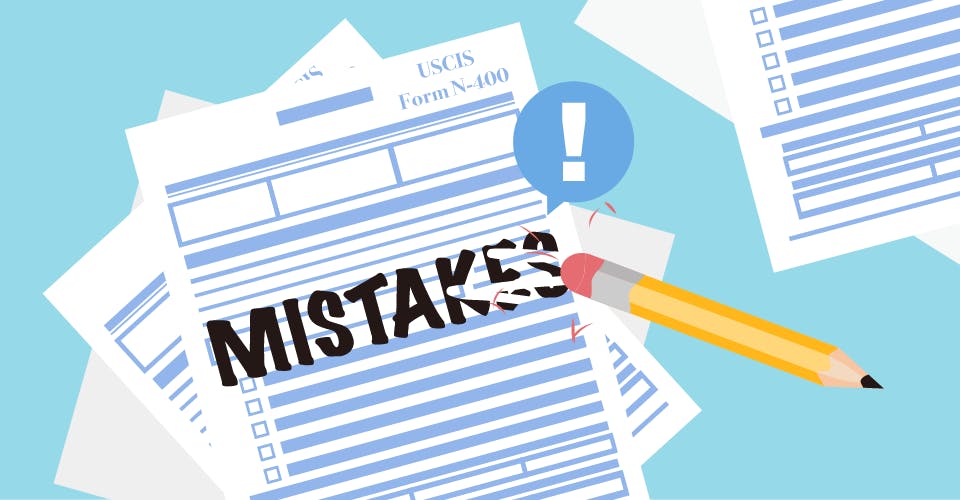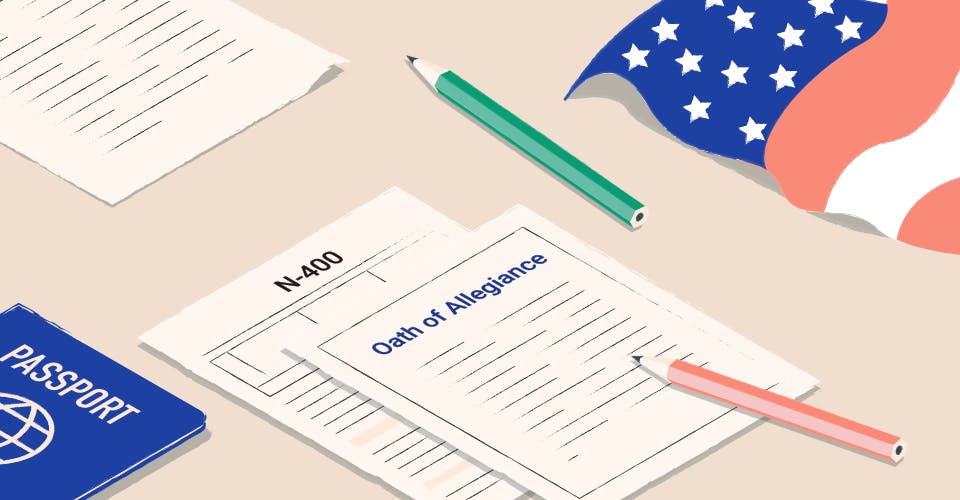The N-400 Application, the standard procedure for becoming a naturalized U.S. citizen, is one of the more lengthy forms when it comes to immigration and adjusting your status as a legal permanent resident. Because there is so much time that has passed since one has received there green card, usually 3-5 years depending on whether an applicant is married or not, your information, your address, your marital status, or your financial status or the place you live now might have changed substantially. When it comes to filling out your N-400, everything on your record needs to be as current as possible. Inconsistencies are problematic for USCIS officers because much of the job description for being such an officer means being on the constant lookout for fraud or false information.
With so many applying for citizenship, regardless of Covid-19, officers are trained to seek out false information, or misleading information, and make it a problem for the applicant in question.
As such, applicants need to be aware of the big issues when it comes to filling out their N-400 application so they can have a successful filing process and make it to the eventual Oath of Allegiance ceremony (which has been reinstated, although in smaller groups due to social distancing measures).
Here are some of the common mistakes that applicants need not make on their citizenship application, and how to go about these problems if they do arise:
1. Don’t file too early.
If you haven’t been married to a U.S. citizen for the past three years, from the time the marriage certificate was signed, then you’ll need to wait a full five years to apply for U.S. citizenship. Be sure to check your passport for important dates of arrival into the U.S., or an expired visa to see what date it became valid. Many applicants simply make the mistake of being a few months off from the five-year mark. But, any number of days short of five years is still invalid from the USCIS perspective.
2. Not consulting a professional.
If you’re having trouble understanding the questions (as it’s a 20-page form) it’s critical to phone the help of an attorney or consultant. It might seem like a large upfront cost. But having to re-apply and submit new fees and possibly leave the U.S. could be a lot more expensive. Once an applicant gets past the first few pages of biographical material, the questions which move to a “Yes” and “No” have to be answered correctly in order to ensure that an applicant can move on to the later stages such as the in-person interview and eventual Civics Test. Consulting a professional might also mean a translator in some cases.
3. Traffic Citations.
Citations of any kind need to be brought to an interview. This is not a crime but it will help ensure that the interviewing officer knows everything that is on your record. Because immigration officers treat any citation with equal weight (in terms of your record), it is pretty common for applicants to simply misplace their citations and then have their cases and processing times lengthened significantly.
Send with a tracking number
Although it might seem obvious, sending your N-400 without going to the post office or having it shipped via a service such as UPS is not a good idea. If you’ve spent over 1000 dollars on your application, applicants should be willing to spend $10 to $20 dollars to make their package is in fact received by immigration services.














